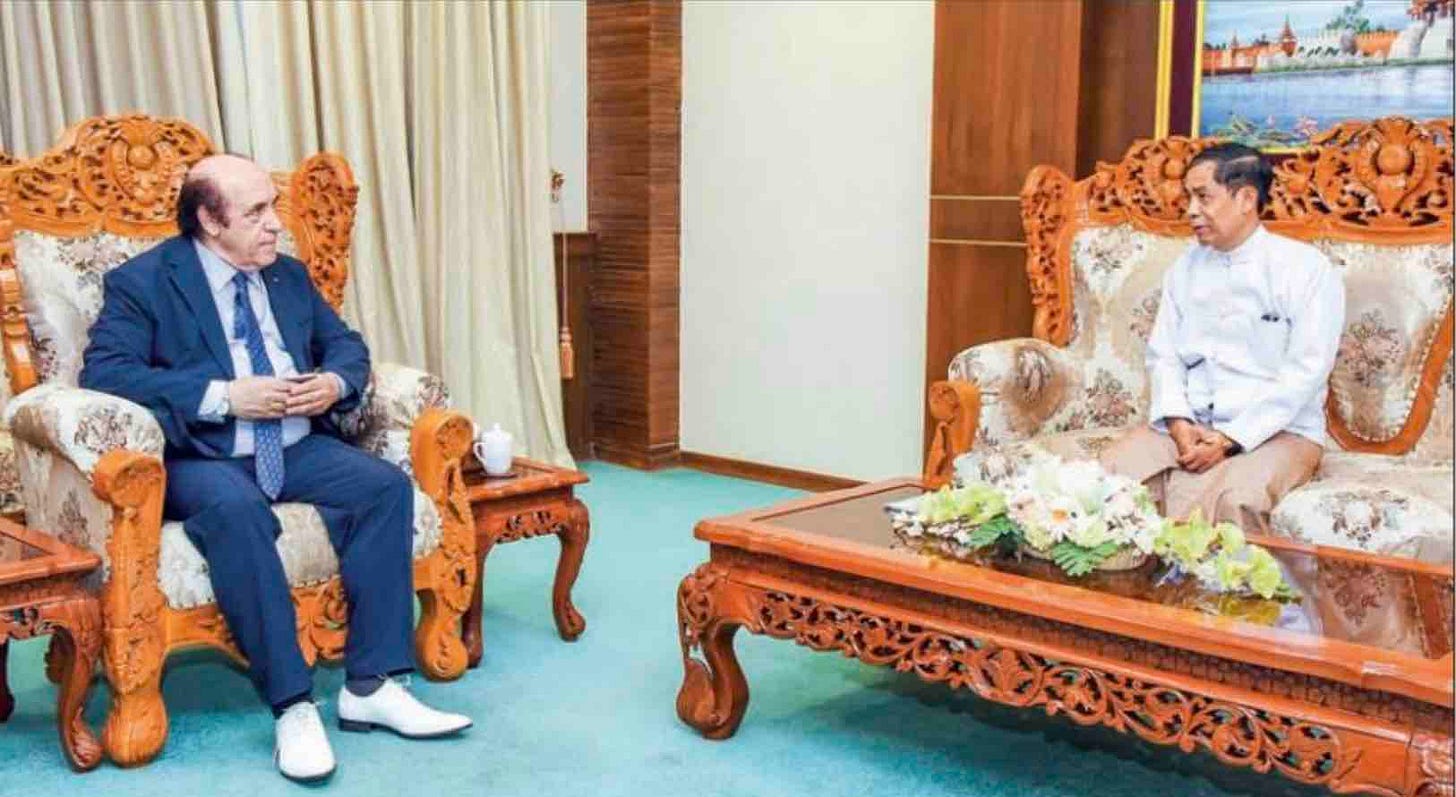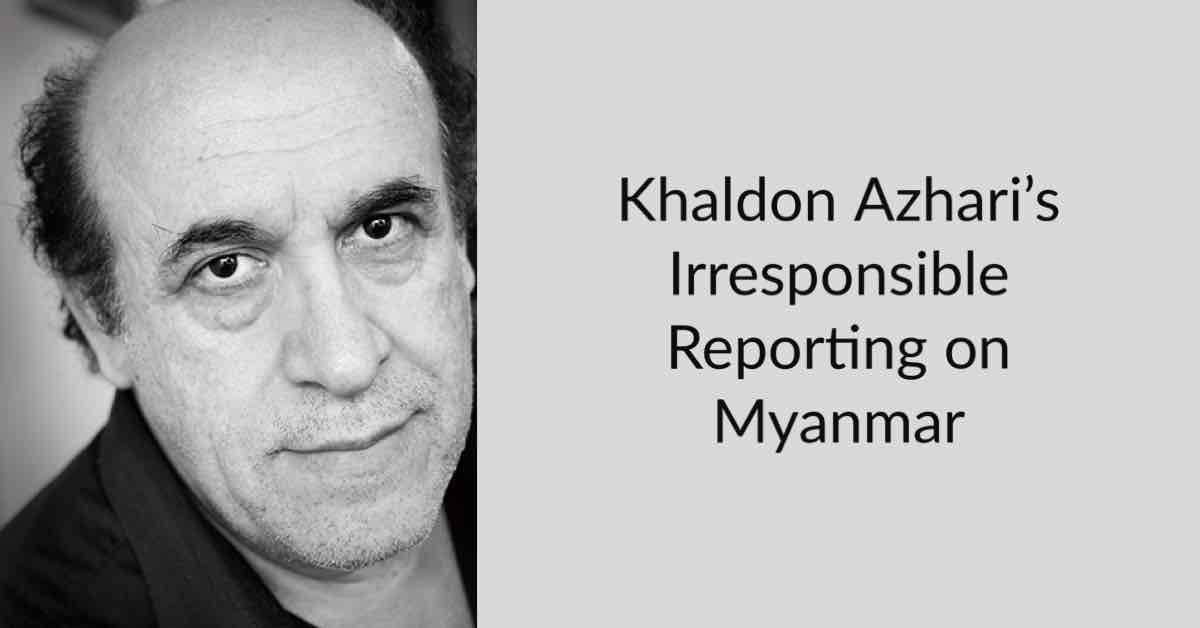Khaldon Azhari's Irresponsible Reporting on Myanmar: Normalising Abuses, Disregarding War, and Human Rights
A look at Azhari's Disturbingly Ignorant Commentary and Complicit Journalism in Myanmar's Crisis
Khaldon Azhari's portrayal of Myanmar offers a concerning disregard for the depth and severity of the crisis faced by the people of Myanmar, which is not only dismissive, but alarmingly complicit in the attempted erasure of gross human rights abuses. His take on the situation is a prime example of irresponsible journalism and dangerously ignorant commentary, contributing to the normalisation of the regime's actions and atrocities.
In the interview (see PDF above), Azhari consistently leans on problematic language to describe Myanmar's crisis. His consistent dismissal of the Rohingya people as 'illegal Bangladeshi immigrants' or 'Bengalis' reflects a deeply concerning lack of understanding of the historical context. This is a dehumanising trope often leveraged by those trying to deny the rightful claims of Rohingya to their homeland in Myanmar. Such commentary exacerbates existing prejudices and hostility against the persecuted Rohingya.
While Azhari claims to believe in the necessity of firsthand experience, his narrative contradicts this belief. He consistently minimises the situation, referring to it as "some issues," "some clashes," or a "dispute between ethnic people," language that dangerously downplays the scale of violence and mass displacement which, in the case of the Rohingya, the United Nations itself has described as a "textbook example of ethnic cleansing" and “genocidal in intent.”
Azhari's account of his trip to Myanmar paints an absurdly rosy, tranquil picture that feels not only disconnected from the ongoing civil war but also callously insensitive to the hundreds of thousands who have been forced to flee their homes since the coup, many of whom have been victims of unthinkable violence. His apparent surprise at not being in danger during his visit shows a profound lack of awareness and a glaring privilege blindness.
Moreover, his dismissive view of the international community's criticism and sanctions against Myanmar as "negative" without giving due consideration to the reasons behind such measures, undermines the crucial role of international pressure in addressing human rights violations.
The suggestion that Myanmar should be "proactive" and "attack" when faced with international condemnation is nothing short of alarming, suggesting the military should take a defiant stance in the face of criticism rather than address the crisis.

In a time where fake news and misinformation have become pervasive, Azhari's casual dismissal of widely corroborated reports of atrocities as "propaganda" or "exaggerated" is disgusting. His assertion that he "seriously do[es] not believe Myanmar has any interest in killing Muslims" comes across as wilfully blind, given the overwhelming body of evidence to the contrary.
I asked Nay San Lwin, a co-founder of Free Rohingya Coalition and an experienced media commentator, for his opinion on Azhari's perspective. His response was unequivocal: "Khaldon Azhari is a disgrace to his profession. He went on a paid junket, and he is now regurgitating the junta's propaganda. Any media organisation that relies on his work should seriously reconsider its decision.”
In summary, Azhari's approach to reporting on the situation in Myanmar is riddled with minimisation, disinformation, and a shocking indifference to human suffering. It epitomises the worst kind of journalism: one that willingly and emphatically serves as an amplifier of the propaganda of oppressive regimes while muting the voices of their victims.
Here is more on this story. Thanks to the 10 who resigned.

